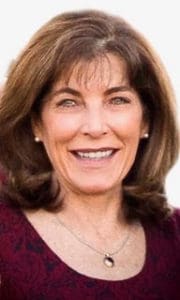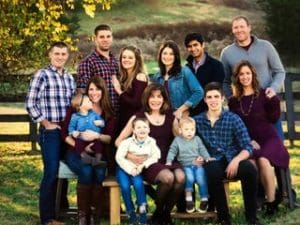A Heart for Peace. Member Spotlight: Kimberly Best
Kimberly Best, TN Rule 31 listed Civil and Family trained mediator and conflict coach, located in Nashville, Tennessee began her career as a registered nurse. After working years in the hospital, Kimberly obtained a Bachelors in Psychology, and later on, attended graduate school in Clinical/Community Psychology at the University of North Carolina at Charlotte. Continuing her extensive education, Kimberly turned to mediation. Kimberly began taking courses at Hofstra University in Transformative Mediation and then attended Lipscomb University, where she earned her MA in conflict management. She followed that with a certificate in Negotiating and Mediating Healthcare Disputes from the University of South Florida and additional training with Ken Cloke. “I’ve pretty much been in school my whole life” Kimberly jokingly admits.
Kimberly turned to mediation after recognizing the impacts that peaceful dialogue can have, even within her own home. It came naturally to her as she explains, “I have a heart for peace”. Mediation to Kimberly is a potential pathway to peace and “maybe if we were able to better understand relationships”, she tells me, “we could change the world”.
Harmony in Diversity
 Kimberly’s family was the catalyst that brought her into mediation. With five children, all working in different sectors and with different beliefs, Kimberly understood the importance of retaining strong relationships in diverse families. “We always knew we were diverse and I loved that”, she notes, “It’s so hard to keep people together in diversity, but that’s what mediation aims to do”. She wanted to contribute to peace and become a part of the solution. She relates mediation to the law of entropy, the universe in its natural state expanding, pulling things apart. Therefore, “we have to actively work to keep things together. What we don’t actively work to hold together, will eventually fall apart”.
Kimberly’s family was the catalyst that brought her into mediation. With five children, all working in different sectors and with different beliefs, Kimberly understood the importance of retaining strong relationships in diverse families. “We always knew we were diverse and I loved that”, she notes, “It’s so hard to keep people together in diversity, but that’s what mediation aims to do”. She wanted to contribute to peace and become a part of the solution. She relates mediation to the law of entropy, the universe in its natural state expanding, pulling things apart. Therefore, “we have to actively work to keep things together. What we don’t actively work to hold together, will eventually fall apart”.
Mindfulness is Key
Recently, Kimberly has been discussing collective trauma with her clients. She explains that trauma is passed through our DNA, which can pass through generations. “We are not reacting to what’s going on currently, we’re reacting to what’s happened in our past, and even what’s gone on for generations before us”, she explains. Mediation aims to heal this trauma and bring awareness to the triggers that ignite our suppressed anguish. “We’re all coming from a hurt place”, Kimberly says, “this is why mindfulness is so important today”. As people many times do not know that another option exists, they become fixated on what they have always been. “Learning to be different than continuing what you’ve always done” can bridge this gap, Kimberly clarifies. “A seed is planted”, when one agrees to mediation and although you may not be sure what will grow from it, “the beginning is there”.
Kimberly recalls an experience exemplifying the importance of mindfulness while volunteering as a registered nurse in Malawi. She participated in providing medical supplies, treatment, and basic physicals to children at a local school in Lilongwe. Kimberly was shocked to find that out of 50 children, only 1 did not have malaria. But, that was not the only take-away Kimberly found. Through cultural awareness, Kimberly was able to see that “there was a peace there that our culture just does not understand”. Mindfulness was key in understanding that we must not assume that one culture prevails over another, nor that the distinct cultures will truly understand one another. Kimberly concludes by saying, “some of those people will always be a part of my life”.
Community Engagement
 Kimberly found MBBI while attending a seminar at Lipscomb University. Here, she met Kenneth Cloke, a key founder and leader of Mediators Beyond Borders. She explains that she was motivated to be more like him with his “generous heart, and his encouragement of other people”. She is a member of the Trust Network, reaching out to her community in Nashville ahead of the 2020 elections. Kimberly adds that bringing Trust Network to her community was an inspiration. Seeing mediation as a tool used in practice, through MBBI, Kimberly was finally able to meet members in her community who are also advocating for peace and dialogue. Through MBBI, Kimberly hopes to help bring harmony to her community. She exclaims, “MBBI is proactive, and provides so much support and so many tools, helping peacemakers reach out to people aiming to ‘get in there before it gets too rough’ ”. She not only has been an active member of MBBI but also sits on the board of the Tennessee Association of Professional Mediators, aiming to advance mediation as the first choice in dispute resolution and to facilitate interactive dialogue before bringing cases to litigation. She is also the author of “How to Live Forever: A Guide to Writing the Final Chapter of Your Life Story” an inspiration to leaving our story as our legacy including how to discuss legal issues, healthcare decisions, end-of-life celebration, and relationships. The book also advocates for mediation as a tool in making these end of life and eldercare decisions.
Kimberly found MBBI while attending a seminar at Lipscomb University. Here, she met Kenneth Cloke, a key founder and leader of Mediators Beyond Borders. She explains that she was motivated to be more like him with his “generous heart, and his encouragement of other people”. She is a member of the Trust Network, reaching out to her community in Nashville ahead of the 2020 elections. Kimberly adds that bringing Trust Network to her community was an inspiration. Seeing mediation as a tool used in practice, through MBBI, Kimberly was finally able to meet members in her community who are also advocating for peace and dialogue. Through MBBI, Kimberly hopes to help bring harmony to her community. She exclaims, “MBBI is proactive, and provides so much support and so many tools, helping peacemakers reach out to people aiming to ‘get in there before it gets too rough’ ”. She not only has been an active member of MBBI but also sits on the board of the Tennessee Association of Professional Mediators, aiming to advance mediation as the first choice in dispute resolution and to facilitate interactive dialogue before bringing cases to litigation. She is also the author of “How to Live Forever: A Guide to Writing the Final Chapter of Your Life Story” an inspiration to leaving our story as our legacy including how to discuss legal issues, healthcare decisions, end-of-life celebration, and relationships. The book also advocates for mediation as a tool in making these end of life and eldercare decisions.
Human Nature
“We’re going to fail as humans”, Kimberly begins, “and we are so anxious to label someone as their worst moment”. According to Kimberly, part of the problem is that we have lost our ability to sit with our imperfections in ourselves and those around us, and we ostracize people for their mistakes. Kimberly wants to change this. She explains mistakes as open doors; rather than a dead-end, a mistake can be an opening and a chance to start again. “This is life”, she adds, “We need to step back and analyze things and see how we can make it better, because, in the end, we are all human”.
Article by Emily Shultis, MBBI Writer
